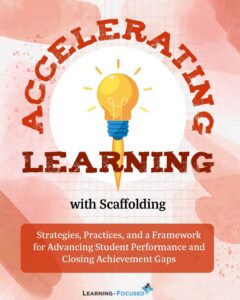Acceleration 101
What Is Acceleration?
Why Is It Important?
Why Every School Should Implement It.
Remediate or Accelerate?
For more than three decades, the predominant approach in schools and districts has been to address and close learning gaps solely through remediation and re-teaching. Regrettably, this exclusive focus has consistently fallen short in propelling the majority of students to reach grade level proficiency. If it were effective, we would observe greater academic growth in 8th-grade students compared to their 4th-grade counterparts, as indicated by the National Assessment of Educational Progress (NAEP).
While an increasing number of educators now recognize the critical need to shift towards Acceleration rather than Remediation, there persists a host of misunderstandings surrounding what Accelerated Learning entails and how to systematically plan and implement it consistently and comprehensively.
5 Misconceptions About Accelerated Learning
Like many educational initiatives, the goal is to make the implementation of evidence-based interventions like Accelerating, or Accelerated Learning, as easy as possible. This has led to common misconceptions about the most effective ways of maximizing impact within a school, including:
Clarification: Accelerated Learning, contrary to the misconception, does not lower grade-level expectations. Instead, it involves employing various strategies to effectively support and challenge students, ensuring their progression towards meeting or exceeding grade-level standards.
"Learning-Focused instructional strategies implementation has helped our special education and regular classroom teachers to begin working together as a more cohesive unit. They are now teaching for a common goal with the same high expectations for all. These strategies have certainly made a big difference in our special education students’ CRCT scores. Preview and acceleration strategies, especially, have served as a vehicle for special education teachers to move beyond remediation."
- Special Ed Director
The Power of Accelerating Learning
Accelerating Learning allows educators to address the learning needs of students by enabling them to identify potential learning gaps or struggle points early on. This early intervention is critical to preventing students from falling behind and struggling to catch up later.
Did You Know?
Learning-Focused began providing professional development on Acceleration in 2003.
"All the wonderful ideas will be used immediately to help our struggling students be successful."
- Lisa Neeld, TN
Unlocking the Potential of Accelerated Learning
“Learning is social, emotional, and academic. Children learn best when they feel safe, affirmed, and deeply engaged within a supportive community of learners.” -Linda Darling Hammond
The way students perceive their abilities significantly shapes their learning experiences. By embracing Accelerating Learning, we not only enhance academic progress but also cultivate students' self-efficacy and self-esteem. This empowerment, in turn, boosts their willingness to actively engage in classroom discussions and participate in challenging activities within a rigorous learning environment.
Individuals, regardless of age, are inherently driven to acquire new skills when they believe they are ready for the challenge.
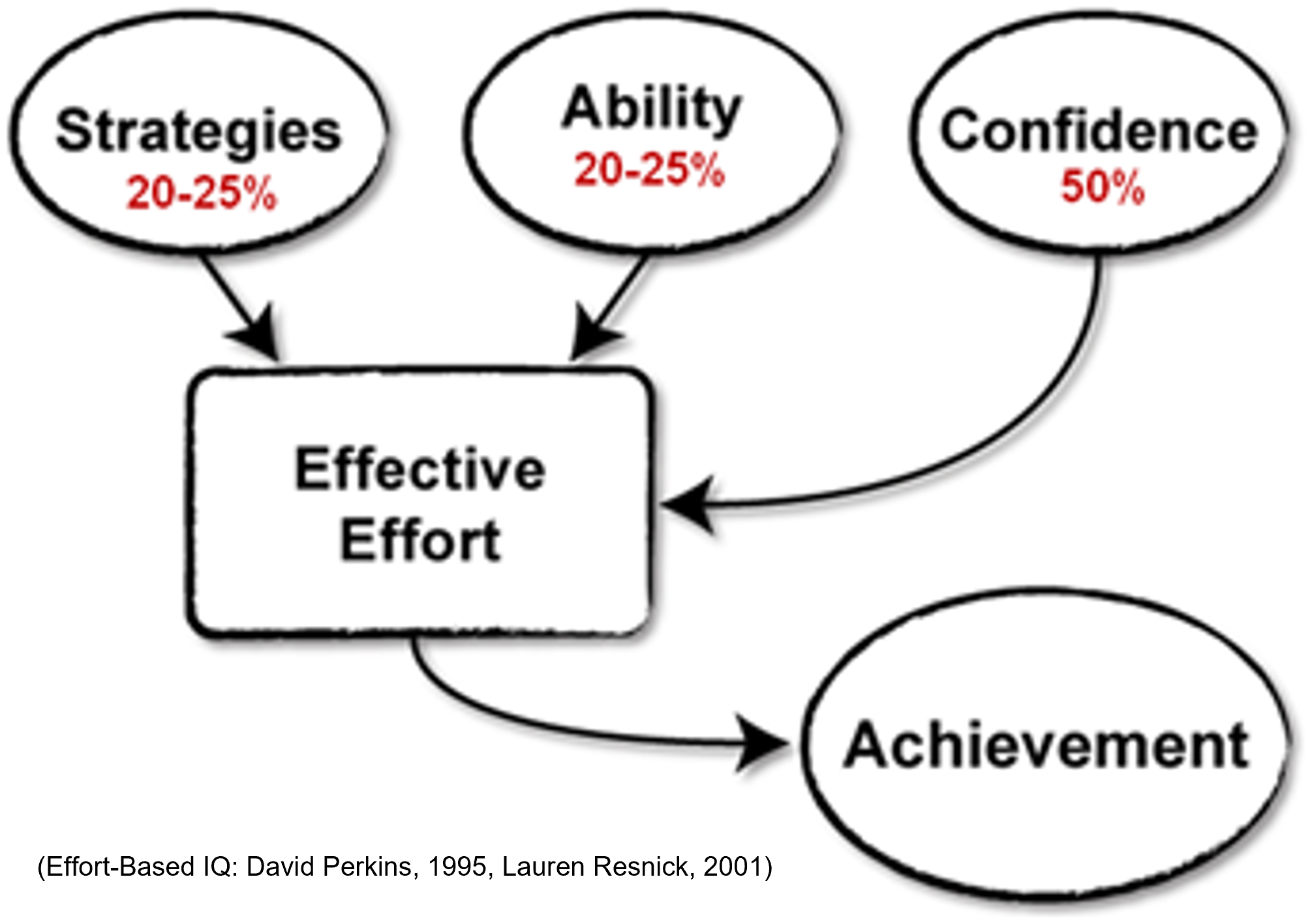
Integrating Acceleration into your lessons becomes a powerful tool for educators, enabling them to establish high expectations for student learning. This is achieved by providing the necessary support that fosters a sense of competence and confidence among students, affirming their belief that they can indeed master the material at hand. Accelerating Learning, therefore, becomes a catalyst for creating a positive and motivated learning atmosphere.
Accelerate Learning for Students: A Case Study on Previewing
Catawba County Schools is a school district in North Carolina. Like many districts, they knew some students struggled to meet proficiency levels, particularly in mathematics. Traditional remediation methods were not yielding the desired results, and there was a need for an innovative approach to address performance and boost student confidence.
Guiding Instruction with anAccelerated Learning Framework
Exemplary Schools distinguish themselves by directing support precisely where students require success—the grade-level classroom lesson. By integrating all support programs into a cohesive focus, they ensure a united and seamless learning experience that is not fragmented or tethered to expectations below grade level.
In Exemplary Schools, Acceleration strategies permeate the entire educational landscape, aiming to:
“The Learning-Focused Acceleration practices has forced us to think differently about the delivery of instruction. Our teachers are planning for how every student learns, and our test scores have outpaced the state for the first time ever. The Learning-Focused Framework has given us the model to achieve exemplary status.”
- Thomas M. Richardson, Director of Curriculum and Instruction
Designing Accelerated Learning Solutions with a Learning-Focused Partnership
In the complex landscape of education, where balancing the demands of curriculum, instruction and assessment requires capacity and sustainability, implementing Acceleration can pose considerable challenges, including:
Teachers often face time constraints due to a packed curriculum and other responsibilities. Planning for acceleration and addressing struggle points requires additional time for analysis, individualized planning, and implementation.
Some teachers may have limited access to resources, such as additional materials, technology tools, or professional development opportunities. Lack of resources can hinder the effective implementation of acceleration practices.
Some teachers may be resistant to change or may have established teaching methods that they are comfortable with. Implementing new practices and addressing struggle points may require a shift in teaching philosophy, which can be challenging for some educators.
Managing a classroom with diverse learning needs can be challenging. Teachers need to adapt their instruction to accommodate varying readiness levels and learning preferences, which requires careful planning and flexibility.
Not all teachers may have received adequate training in implementing acceleration practices or addressing struggle points. Professional development opportunities may be limited, making it difficult for educators to acquire the necessary skills and knowledge.
Accurately assessing students' readiness levels and identifying specific struggle points can be challenging. Teachers need reliable assessment tools and methods to gather meaningful data for effective planning.
In light of these challenges, Learning-Focused partners with schools and districts to offer strategic solutions and collaborative approaches. We focus on addressing these hurdles proactively, by providing quality resources and professional development, and ensuring the successful integration of Acceleration through a shared responsibility of implementation, for both administrators and teachers.
Not sure where to start? Schedule a call to discuss your goals with us.
Accelerated Learning Solutions: Accelerate Learning Professional Development Series
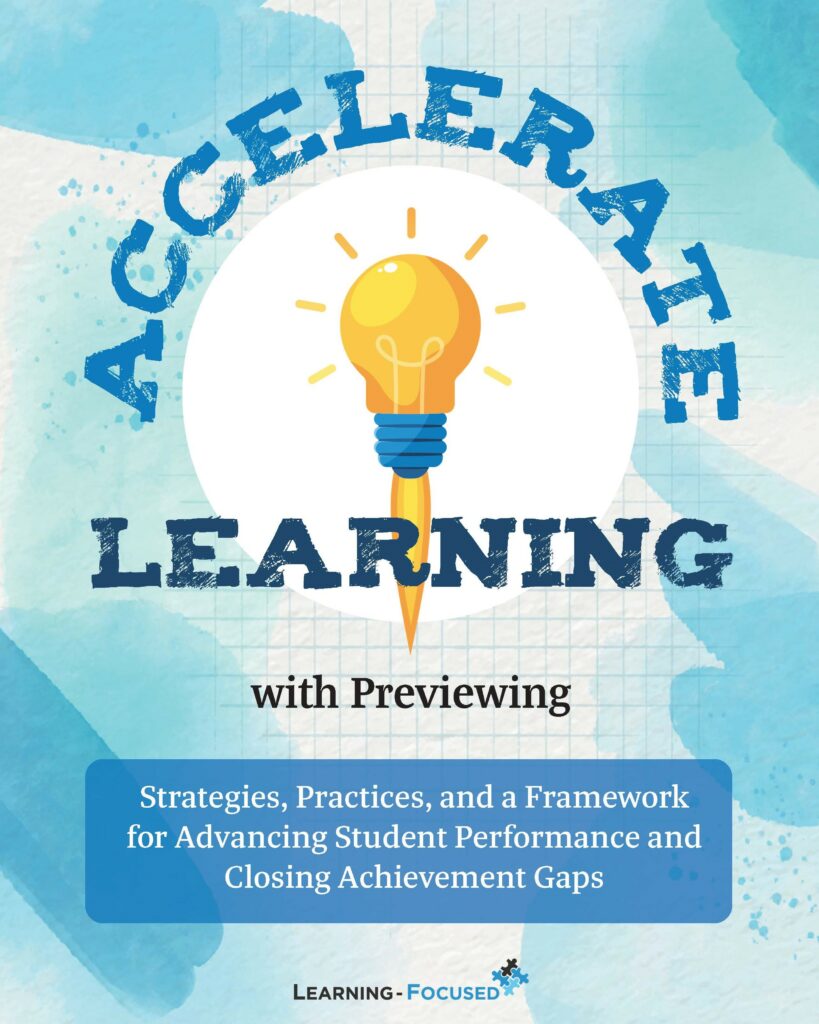 Educators in Exemplary Schools rethink how lessons and instruction are organized and focus on a different type of intervention - Previewing. Accelerate Learning with Previewing provides a proactive approach that replaces most re-teaching and remediation with specific strategies and practices that ensure all students successfully meet grade level expectations.
Educators in Exemplary Schools rethink how lessons and instruction are organized and focus on a different type of intervention - Previewing. Accelerate Learning with Previewing provides a proactive approach that replaces most re-teaching and remediation with specific strategies and practices that ensure all students successfully meet grade level expectations.
Accelerate Learning with Previewing can even help students who are 1, 2, or 3 grade levels behind achieve success! Accelerate Learning with Previewing is supported by additional self-paced courses on Review and Remediation.
Teaching students of varying backgrounds, experiences, and readiness levels is one of the most challenging aspects of teaching. It is often compounded when students come to class one or more grade levels behind.
When students receive the support they need to be successful during grade-level activities and assignments, their confidence builds to try more complex and challenging tasks. Their confidence and ability are bolstered by the success that comes with proper support. Scaffolding strategies provide support that are gradually removed as students master new knowledge and skills.
Accelerate Learning with Scaffolding provides strategies that meaningfully engage students with the content without overloading teachers!
.
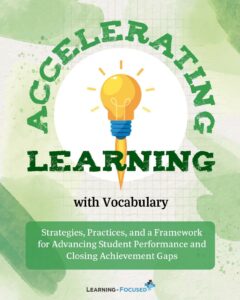 Comprehension and learning are severely impacted by students’ vocabulary knowledge, much of which is initially based on factors outside the control of teachers and schools. Traditional vocabulary instruction does not effectively and persuasively increase student comprehension. To increase comprehension, all lessons should include a robust amount of proven vocabulary strategies and instruction.
Comprehension and learning are severely impacted by students’ vocabulary knowledge, much of which is initially based on factors outside the control of teachers and schools. Traditional vocabulary instruction does not effectively and persuasively increase student comprehension. To increase comprehension, all lessons should include a robust amount of proven vocabulary strategies and instruction.
Accelerate Learning with Vocabulary provides innovative methods for connecting strategies that ensure students learn key grade-level content and academic terms. You will discover a system where students learn and utilize key vocabulary terms before, during, and at the end of all lessons - which dramatically improves comprehension!
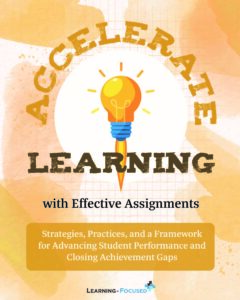 Despite a data-driven approach to school improvement, most schools find themselves stuck within an achievement trendline of ten percentile points, unable to break away to consistently higher academic growth and proficiency levels.
Despite a data-driven approach to school improvement, most schools find themselves stuck within an achievement trendline of ten percentile points, unable to break away to consistently higher academic growth and proficiency levels.
Unfortunately, this often leads to a fallacy that students are unable to do the work expected of them. This may cause teachers to lower their expectations for students, and in upper grades causes schools to place students into less challenging courses. As a result, students are provided a less demanding curriculum with low-level assignments and instruction at all levels, all of which lead to low assessment scores. This Cycle of Low Achievement locks schools into an achievement rut, unable to close learning gaps.
Exemplary Schools use a system for consistently planning lesson assignments and assessments that reflect grade-level expectations differentiated to meet the needs of all students. Accelerate Learning with Effective Assignments provides a roadmap for generating differentiated assignments and assessments that integrate content, literacy, and thinking skills from grade-level standards.
Ready for the Next Step?
Contact us to discuss how Learning-Focused can help you with your school or district’s instructional goals.
Set an appointment to discuss your school or district’s goals, previous implementation, and how Learning-Focused as an education partner can assist you with achieving them.


